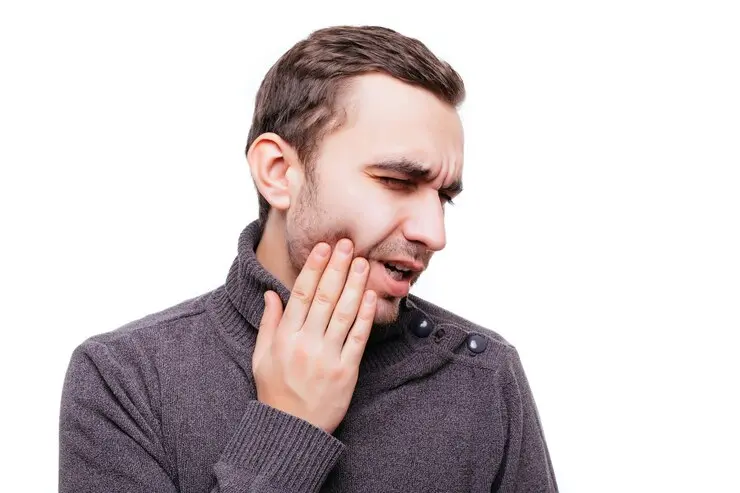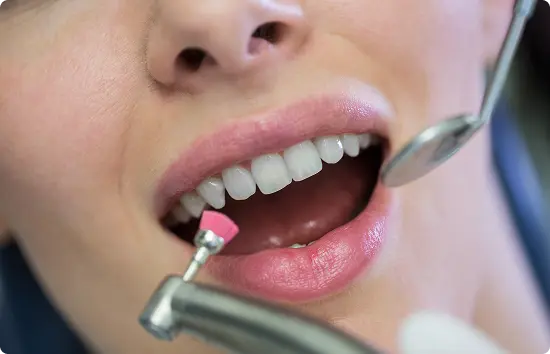TMJ/TMD Treatment - Rochester Hills, MI
What To Do If You Have Locked Jaw or Other TMD Disorders
Your overall well-being and comfort are very important to Dr. Gehan Girgis, and we provide a variety of dental treatments. For example, we may recommend TMJ treatment in Rochester Hills, Michigan, if you are experiencing problems with mobility or advanced soreness in your jaw. If you have questions about TMJ treatment or would like to schedule a visit at River Square Family Dentistry, please call (248) 650-2440.
What Is TMJ?
TMJ, also known as temporomandibular joint or jaw joint, is a part of the jaw that connects the jaw to the skull. TMJ acts like a sliding hinge to enable the jaw to move up and down. TMJ disorder, or jaw joint disorder, causes pain in the jaw, muscles, and joint area and makes it harder for the patient to talk, eat, and drink. At River Square Family Dentistry in Rochester Hills (Rochester, MI), there are TMJ Specialists who care for our TMJ patients and maintain their treatments gracefully and carefully.
Symptoms Of TMJ Disorder
A great portion of our patients with TMJ Disorder typically experience the same or similar symptoms, which means it is very easy to detect a TMJ Disorder. There are several common symptoms of TMJ Disorder, such as:
- Pain in the jaw
- The feeling of tenderness in or around the jaw
- Pain or discomfort around the ear or ears
- Experiencing difficulty while eating, drinking, and speaking
- Locking of the jaw joint, making it hard to move the jaw
While most patients suffering from TMJ Disorder usually face these symptoms, there may be other symptoms in certain cases. For this reason, you should see a TMJ Specialist as soon as you notice a problem or experience an unusual situation.
What Causes TMJ Disorder?
For the jaw joint to function as a hinge that can perform sliding movements, it depends on a disc that is located between the jawbone and the skull. This structure, including the muscles, the joint, and the disk, is covered with cartilage. Most TMJ Disorder cases occur due to an inconvenience in this area. Although it is hard to diagnose the patient with TMJ Disorder most of the time. Some of the most common diagnosable causes of TMJ Disorder are:
- The eroding of the shock-absorbing disk that is located between the jaw and the skull,
- Damage in the cartilage of the joint due to arthritis,
- Damage in the jaw area due to an impact from outside.
Is TMJ Disorder Serious?
Although there isn’t enough proof to consider TMJ Disorder as a dangerous complication, it can be said to be relatively serious. TMJ Disorder usually fades away by itself in most cases, but it can also persist for long periods and may require a surgical operation. Although surgery is not needed for most cases with TMJ Disorder, there may be exceptional situations certainly requiring it.
The TMJ is the temporomandibular joint or the joint that connects the lower jaw to the rest of the head. The term “TMJ” is often used to refer to TMJ disorder, also called TMD, which occurs when the jaw joint becomes stressed, injured, or misaligned. TMJ disorder may result from several different factors, such as stress, bruxism (teeth grinding and clenching), arthritis in the TMJ, or trauma and injury to the head, neck, or jaw.
You may suffer from TMD if you experience frequent jaw pain or facial pain. TMJ disorders may also cause:
- Grinding, clicking, or popping sounds in the jaw when you open and close your mouth
- Inability to open your mouth wide to speak, yawn, or chew
- A locked or stuck jaw
- Pain when chewing and biting
- Pain in the neck, shoulders, or ears
- Frequent headaches
With our highly talented TMJ Specialists, we, at River Square Family Dentistry, can offer special treatments for our TMJ patients. For further information about TMJ Disorder or other dental inconveniences for which Rochester Hills Dental Clinic offers treatment, you can call us at (248) 650-2440, or you can visit our Rochester Hills clinic in Rochester, MI, for TMJ/TMD TREATMENT.
How Can Dr. Gehan Girgis Help?
To ensure that you and your loved ones can sleep peacefully through the night, our dentist provides TMJ/TMD TREATMENT. Our most common snoring treatment is oral appliance therapy. We will provide you with a custom-made oral appliance, which you wear only while you sleep. The snoring appliance works by ensuring that your airway stays open and free of obstructions while you sleep. This may be accomplished by preventing the tongue from rolling back or by holding your jaw in a position that prevents the airway tissues from collapsing. We will make certain that your custom snoring appliance fits effectively to minimize snoring and comfortably allow you to sleep peacefully.
Our dentist can help you determine the cause of your TMJ disorder and recommend the appropriate treatment. Treatment for the TMJ will depend on the cause and severity of your TMJ disorder. TMD treatment may include jaw and facial relaxation exercises, lifestyle changes, restorative dental treatments, a mouth guard or night guard, or jaw surgery. To learn more about TMJ treatment and to schedule your consultation with our dentist, we encourage you to contact us today.
If you snore frequently, we encourage you to contact our office today at (248) 650-2440 to learn more about snoring treatment and to schedule your next visit with our dentist. We are eager to care for you!
Please visit our LinkedIn or Facebook social media pages for more information about TMJ/TMD TREATMENT.




